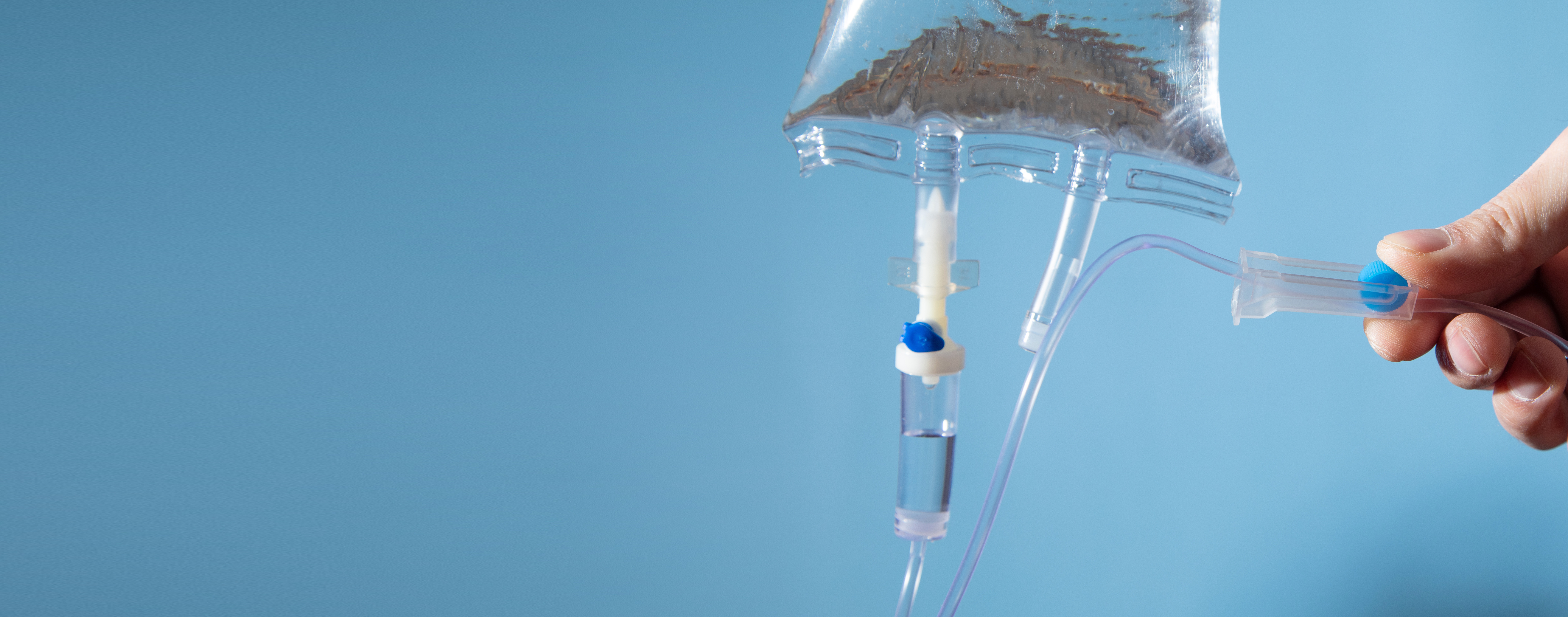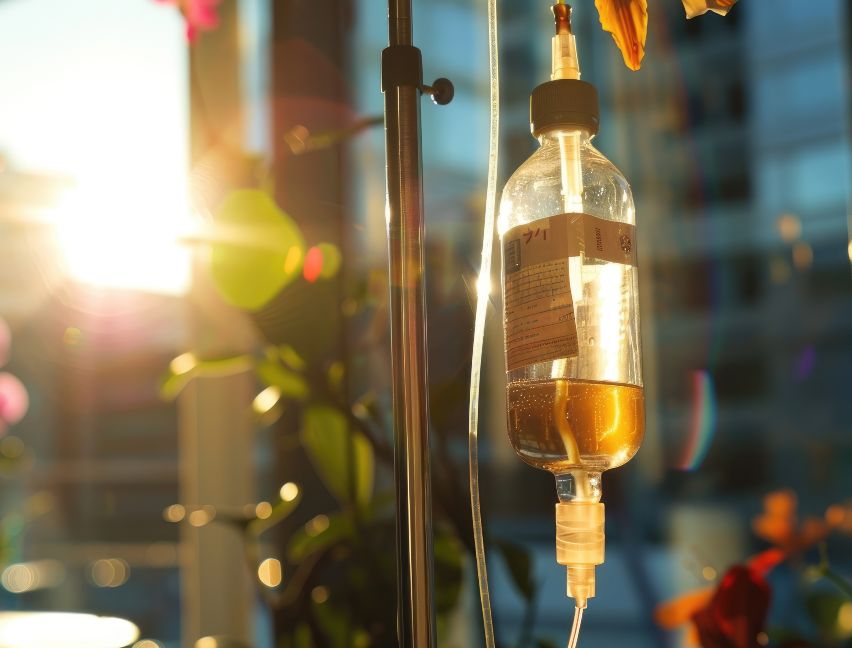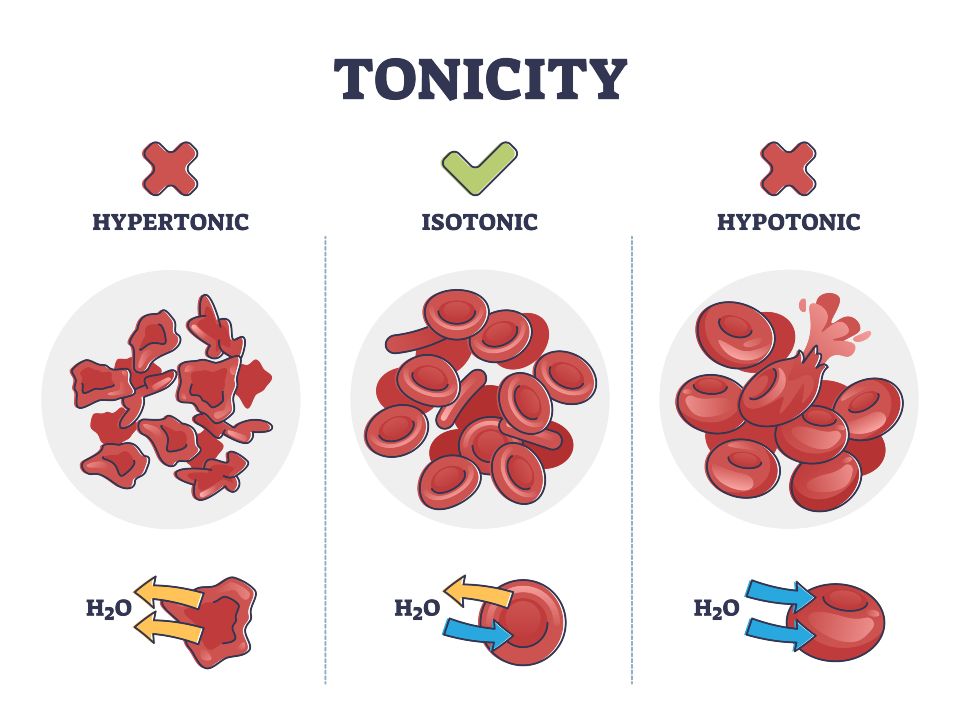I went to dripwell on a Saturday. I called that day and Dave was super nice and efficient about getting me a same day appt. I had been diagnosed with the flu and just sick for awhile and felt that maybe an immune booster and some hydration would help. I spoke with Kristi for a phone consult before my appt. who was great. I met with Sophie when I got there and she was also great! Really gentle and we talked the hour away! While I think that the hydration would normally work, it just didn’t for me due to other underlying issues from the flu. I would definitely be willing to try it again when not super sick!
IV therapy
Ashley Foti
My husband and I both got IV’s last week after running a marathon and we are both convinced they helped bring us back to life! We felt great the rest of the day and even the next day, as we ran a second marathon in two days. Sophie is the absolute best and we can’t wait to do it again!! 10/10 experience.
lauryn shattuck
Kristi is the best! I called for a hangover cure and she was able to get me in a couple hours after reaching out! The experience was amazing! Kristi is very efficient and professional! I left there not feeling hungover, I felt refreshed and like a new person! Thank you
Rachel Hartford
Kristi is an absolute angel. I called for an IV appointment not expecting to get in the same day. I left a voicemail inquiring about appointments and she called me back within ten minutes to set me up with an appointment. The directions to find the office was very easy. She made me very comfortable taking all the proper medical precautions prior to the IV. Kristi and I chat the entire time, she is lovely. I can’t wait to go back for another hydration IV, I feel great! I will be telling all my family and friends about the services at Drip Well!
Where does it come from
It is a long established fact that a reader will be distracted by the readable content of a page when looking at its layout. The point of using Lorem Ipsum is that it has a more-or-less normal distribution of letters, as opposed to using ‘Content here, content here’, making it look like readable English.
Why do we use it
It has survived not only five centuries, but also the leap into electronic typesetting, remaining essentially unchanged. It was popularised in the 1960s with the release of Letraset sheets containing Lorem Ipsum passages, and more recently with desktop publishing software like Aldus PageMaker including versions of Lorem Ipsum.
Choosing the Right Types of IV Fluids for Your Needs
Choosing the Right Types of IV Fluids for Your Needs

Your body’s delicate balance of fluids, electrolytes, and nutrients is essential for optimal health and well-being. When this balance is disrupted by dehydration, illness, or injury, IV therapy provides a rapid and effective way to restore homeostasis. But what exactly are IV fluids, and how do they work?
Understanding IV Fluids: Crystalloid vs. Colloid Solutions
IV fluids are sterile solutions administered directly into the bloodstream, allowing quick absorption and maximum benefit. There are two main categories of IV fluids: crystalloid and colloid solutions.
- Crystalloid Solutions: These affordable and readily available fluids contain tiny molecules that can pass through cell membranes, making them ideal for rehydration and electrolyte replacement.
- Colloid Solutions: Composed of larger molecules in the bloodstream, colloid fluids are primarily used to expand the volume in cases of significant blood loss or severe dehydration.


Exploring Crystalloid IV Fluids: Hypotonic, Isotonic, and Hypertonic
Crystalloid solutions are further classified into three subgroups based on their tonicity, or concentration of solutes compared to blood plasma:
- Hypotonic Solutions: With lower solute concentration than blood plasma, hypotonic fluids move water into cells, helping to rehydrate them. Examples include 0.45% NaCl and 2.5% dextrose in water.
- Isotonic Solutions: With a solute concentration similar to blood plasma, isotonic fluids maintain fluid balance without causing significant shifts between cells and the bloodstream. Examples include 0.9% NaCl (normal saline) and Lactated Ringer’s solution.
- Hypertonic Solutions: Containing higher solute concentration than blood plasma, hypertonic fluids draw water out of cells, helping to reduce swelling and increase blood volume. These include 3% NaCl and 5% NaCl.
Colloid Solutions: Restoring Blood Volume and Nutrients
Colloid solutions, such as albumin and hetastarch, are crucial in maintaining blood volume and providing essential nutrients to the body. They are particularly beneficial for patients with significant fluid loss or those needing nutritional support.


Choosing the Right IV Fluid: Tailored to Your Needs
The most suitable type of IV fluid depends on your specific condition and needs. Your healthcare provider will carefully assess your situation and recommend the appropriate solution to address your symptoms and restore balance to your body.
Conclusion
IV fluids are crucial in maintaining the body’s homeostasis and are classified into crystalloid and colloid solutions. Based on their tonicity, crystalloid solutions are further categorized as hypotonic, isotonic, and hypertonic and serve different purposes in fluid and electrolyte balance.
Frequently Asked Questions (FAQs)
What are the main signs of dehydration indicating the need for IV fluids?
Signs of dehydration include thirst, dry mouth, dark urine, fatigue, dizziness, confusion, and, in severe cases, low blood pressure and rapid heartbeat. If you experience these symptoms, especially after illness, exercise, or heat exposure, IV therapy might be beneficial.
How long does IV therapy take?
The duration of IV therapy varies depending on the specific fluids used and your individual needs. It can range from 30 minutes to several hours.
Can I receive IV therapy at home?
Yes, mobile IV therapy services offer the convenience of receiving treatment in the comfort of your home or other location.
Does insurance cover IV therapy?
Insurance coverage for IV therapy varies depending on your provider and the specific medical reason for treatment.
